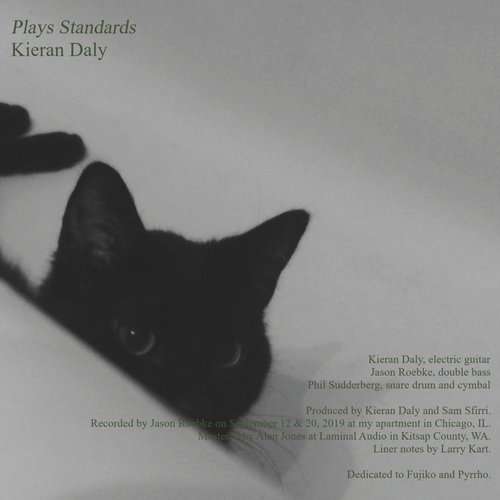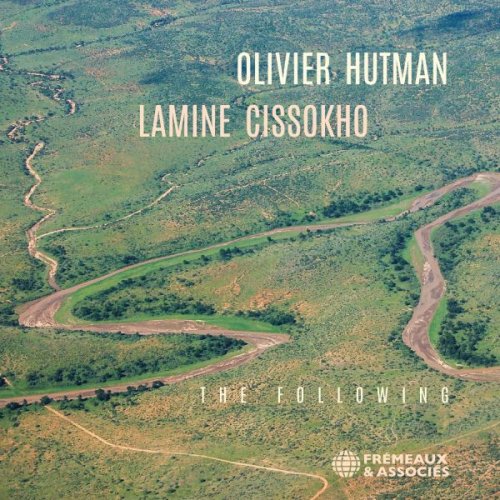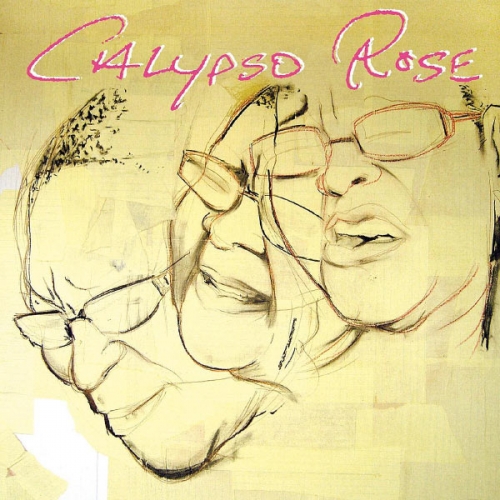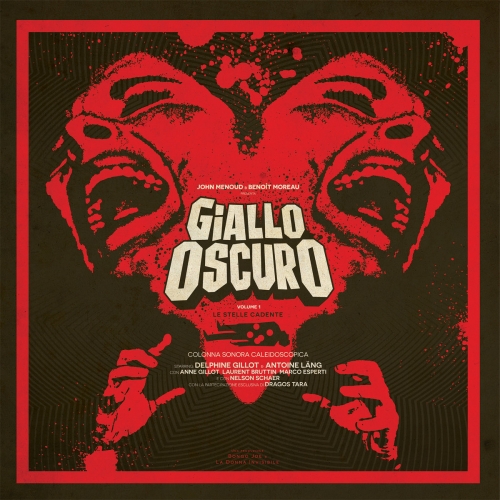Kieran Daly - Plays Standards (2019)

Artist: Kieran Daly
Title: Plays Standards
Year Of Release: 2019
Label: Madacy Jazz
Genre: Avant-Garde Jazz, Free Improvisation, Experimental
Quality: FLAC (tracks+.cue,log,scans)
Total Time: 00:40:02
Total Size: 238 MB
WebSite: Album Preview
Tracklist:Title: Plays Standards
Year Of Release: 2019
Label: Madacy Jazz
Genre: Avant-Garde Jazz, Free Improvisation, Experimental
Quality: FLAC (tracks+.cue,log,scans)
Total Time: 00:40:02
Total Size: 238 MB
WebSite: Album Preview
01. Jones' (5:01)
02. IV (3:54)
03. Indiana (4:18)
04. Y Bird Suite (2:30)
05. Wow's (4:15)
06. Soundly (4:49)
07. Solar's (3:42)
08. Bell (4:30)
09. Nowhere (2:53)
10. Scrap (4:10)
This is a music of a crushed, almost desperate, elemental lyricism, a music where an intense gravitational pull wrestles with an also elemental drive or need to survive and sing.
One thinks of what life might be like on the surface of Jupiter, the so-called heavy planet — should there even be life there. Or, better yet perhaps, of the episode in the book of Genesis where Jacob wrestles all night with an angel who refuses to give Jacob his name and who, at daybreak, demands to be let go, whereupon Jacob says, “Not until you bless me,” which the angel does then do. One should add that at one point in Jacob’s night-long wrestling match with his antagonist, the mighty angel touches the socket of Jacob’s hip and throws it out of joint, whereupon, we are told, Jacob will forever walk with a limp.
Allow me to persist for a while in this quasi-Biblical vein, which I promise will lead us back to Kieran Daly’s music.
Modifying the words of one interpreter of the story of Jacob, a limp causes your pace to be altered. And because of that limp your perception of things is slanted. You are more cautious and less independent; you are reminded with every step of your vulnerability.
Fundamental and circumstantial, Jacob’s limp was symbolic — a physical sign that announced his coming as loudly as theme music. It pointed to how and why he had had to change and how he had grown.
By now, I hope, you’ve begun to move on from my perhaps farfetched Biblical parallelisms to Kieran Daly’s unique music. Is it not a notably hesitant music that consistently lurches or at times even staggers forwards and then more or less falls or descends to one knee — harmonically, rhythmically, and in its melodic shapes — only to rise again and firmly move on? And are not its melodic shapes notably oblique and typically delivered sotto voce (here one should mention the denatured, almost muttering sound that Daly gets from his guitar)?
Returning to rhythm, while this is a music of steady pace by and large (buoyed by the support of bassist Jason Roebke and drummer Phil Sudderberg), from its moments of hesitation and descent lovely moth-like flurries can suddenly arise — acts of release or flights from entrapment, one hesitates to say for sure; perhaps both.
Where then does this unusual music come from, aside from the specific sensibility and sensitivities of Kieran Daly? It certainly is related to to some degree to the music of Lennie Tristano and such Tristano-influenced masters as Lee Konitz and Warne Marsh — both the sound and the some of the titles of the pieces on this album tell us that, though the aforementioned “limp” and the in-grained descents and hesitancies of Daly’s approach do tend to cloak everything here in a mantle of distance from any given source.
In any case, having raised the “where does this music come from?” question, I think we’ll have to be satisfied with this — the mind of Kieran Daly and the wrestling matches he no doubt will continue to engage in. May he persist and prevail.
One thinks of what life might be like on the surface of Jupiter, the so-called heavy planet — should there even be life there. Or, better yet perhaps, of the episode in the book of Genesis where Jacob wrestles all night with an angel who refuses to give Jacob his name and who, at daybreak, demands to be let go, whereupon Jacob says, “Not until you bless me,” which the angel does then do. One should add that at one point in Jacob’s night-long wrestling match with his antagonist, the mighty angel touches the socket of Jacob’s hip and throws it out of joint, whereupon, we are told, Jacob will forever walk with a limp.
Allow me to persist for a while in this quasi-Biblical vein, which I promise will lead us back to Kieran Daly’s music.
Modifying the words of one interpreter of the story of Jacob, a limp causes your pace to be altered. And because of that limp your perception of things is slanted. You are more cautious and less independent; you are reminded with every step of your vulnerability.
Fundamental and circumstantial, Jacob’s limp was symbolic — a physical sign that announced his coming as loudly as theme music. It pointed to how and why he had had to change and how he had grown.
By now, I hope, you’ve begun to move on from my perhaps farfetched Biblical parallelisms to Kieran Daly’s unique music. Is it not a notably hesitant music that consistently lurches or at times even staggers forwards and then more or less falls or descends to one knee — harmonically, rhythmically, and in its melodic shapes — only to rise again and firmly move on? And are not its melodic shapes notably oblique and typically delivered sotto voce (here one should mention the denatured, almost muttering sound that Daly gets from his guitar)?
Returning to rhythm, while this is a music of steady pace by and large (buoyed by the support of bassist Jason Roebke and drummer Phil Sudderberg), from its moments of hesitation and descent lovely moth-like flurries can suddenly arise — acts of release or flights from entrapment, one hesitates to say for sure; perhaps both.
Where then does this unusual music come from, aside from the specific sensibility and sensitivities of Kieran Daly? It certainly is related to to some degree to the music of Lennie Tristano and such Tristano-influenced masters as Lee Konitz and Warne Marsh — both the sound and the some of the titles of the pieces on this album tell us that, though the aforementioned “limp” and the in-grained descents and hesitancies of Daly’s approach do tend to cloak everything here in a mantle of distance from any given source.
In any case, having raised the “where does this music come from?” question, I think we’ll have to be satisfied with this — the mind of Kieran Daly and the wrestling matches he no doubt will continue to engage in. May he persist and prevail.

![Fabiano do Nascimento - Vila (2026) [Hi-Res] Fabiano do Nascimento - Vila (2026) [Hi-Res]](https://img.israbox.com/img/2026-02/26/o4t38f6qf24pvc3bqzanbhsz3.jpg)


![El Calefón - Salir Del Agujero (2026) [Hi-Res] El Calefón - Salir Del Agujero (2026) [Hi-Res]](https://img.israbox.com/img/2026-02/26/sm3fq4x280rjvn4eh85ksne6j.jpg)

![Martin Listabarth Trio - In Her Footsteps (2026) [Hi-Res] Martin Listabarth Trio - In Her Footsteps (2026) [Hi-Res]](https://www.dibpic.com/uploads/posts/2026-02/1771946819_folder.jpg)

